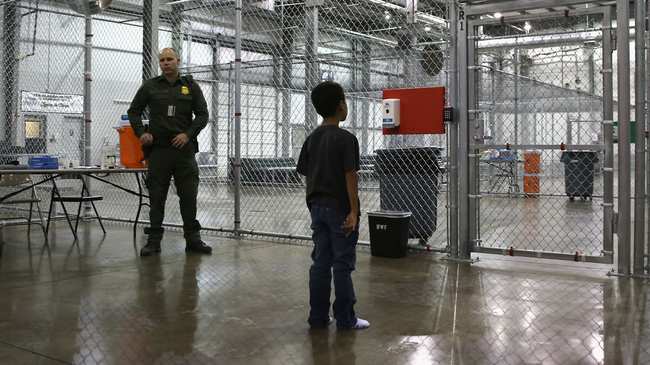The Trade War Has America Wincing
What a hilarious spectacle. America has encountered no natural disasters, and American farmers ought to be earning money by expanding their markets. But now, they have become beneficiaries of emergency relief from the U.S. government, and no one knows how long this “disaster” and “emergency food relief” will last. Many American farmers are probably now at a complete loss on how to plan for their future livelihood.
As the trade war expands, more and more American businesses will suffer. Who will be subsidized and who won’t be, and how will the subsidies be distributed? These are difficult things to balance. As the Trump administration batters the basic foundation of economic livelihood, it’s bringing a whole lot of trouble to China, the European Union, Mexico, Canada and others, and at the same time, it’s causing America’s domestic economic order to sink into a state of total confusion.
Of course, China and other countries will also be forced to deal with the impact of the trade war by implementing aid programs for suffering industries and companies. But America is counting its chickens before they hatch by assuming that China and other countries will suffer, that they will be unable to bear the burden, and that they will therefore make major concessions to America.
This kind of wishful thinking is extremely childish. Trump believes that in the interest of long-term economic gains, American society can withstand the short-term burden of a trade war; so why doesn’t he think that China and other countries can do the same? Is America superior to China and other countries with respect to the political resource that is the ability to maintain social cohesion? At least when it comes to China, it seems like we’ve got a lot more of that particular resource than America does!
The vast majority of Chinese people understand very clearly that this trade war has been foisted upon us by America. Although we did not want to fight, we were forced to. China had no other choice. In contrast, American society knows that this chaos is the result of the White House’s deliberate provocation, and that America has the option of ending this trade war and pursuing a smarter path. The Trump administration must constantly prove that the suffering its trade war is bringing people is “right,” while other countries have no need to prove anything; for all other countries, the fight simply “is,” and the suffering is externally imposed.
As the trade war continues, all the parties will have no choice but to deal with its impact, and that will require space to maneuver. As the negative impact grows, that space will expand to encompass social, political and even historical planes. China has experienced countless difficulties and challenges, and while the last 20 years have been relatively smooth, our mechanisms for responding to major challenges are still in place. China’s state-owned enterprise reform came with a wave of layoffs, and we’ve dealt with Western sanctions for a long time. Why would the hardships of this trade war be insurmountable?
Now the trade war has begun, and Chinese society’s basic attitude about it is, “If you can't do anything to prevent it, you might as well sit back and enjoy it.” In fact, people are calmer now than before the trade war began in earnest. It is much less of a hot topic in the public eye than it was before. The Chinese people have given ample thought and preparation for the possibility of an extended trade battle with America, so even if America takes the conflict between the two countries beyond the economic sphere, we still won’t be fazed.
Washington has always criticized Europe and China for subsidizing agriculture, but in fact, America has subsidized agriculture for a long time. Now, they have openly declared an increase in subsidies, and it looks like the tone of international discourse on this issue is changing. This trade war is morphing into a chaotic melee.
Some people believe that Trump will press on with this erroneous strategy until the American midterm elections in November in order to retain voter support, and that this $12 billion subsidy is in service of that goal. This interpretation would allow us to hope that after the midterm elections, Trump’s trade policies will soften somewhat.
But the majority of Chinese people have abandoned this line of thought. We are prepared for the trade war to last well past November, and we have not at all ruled out the possibility that it may continue for the duration of Trump’s presidency. Perhaps it is only with a trade war of this scale that America will be able to remember the value of Sino-U.S. cooperation.


